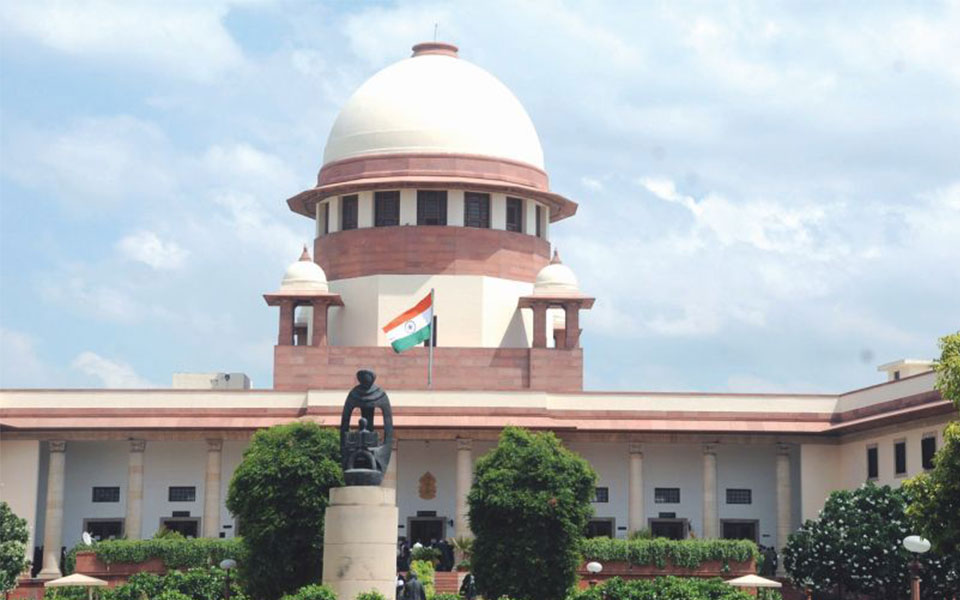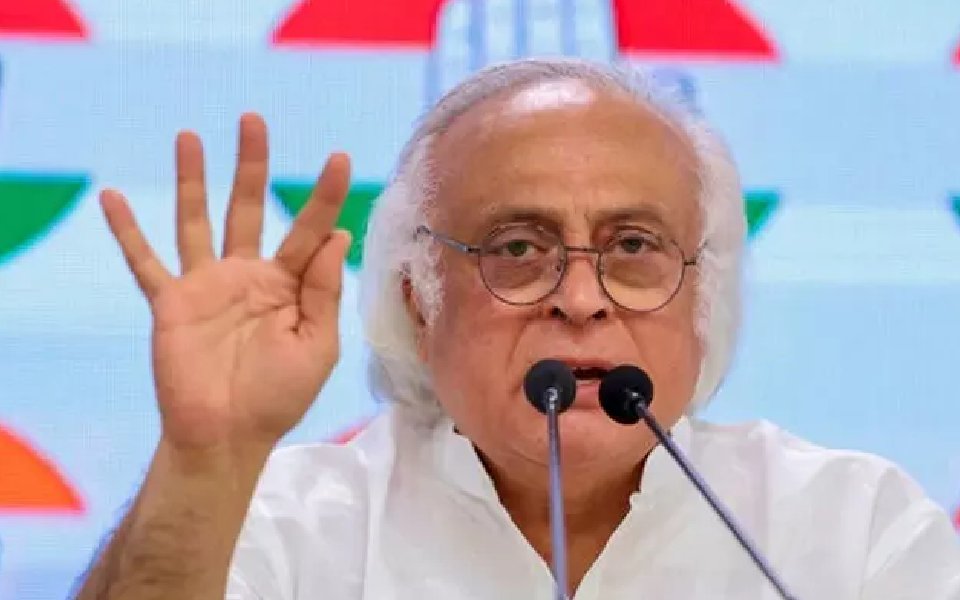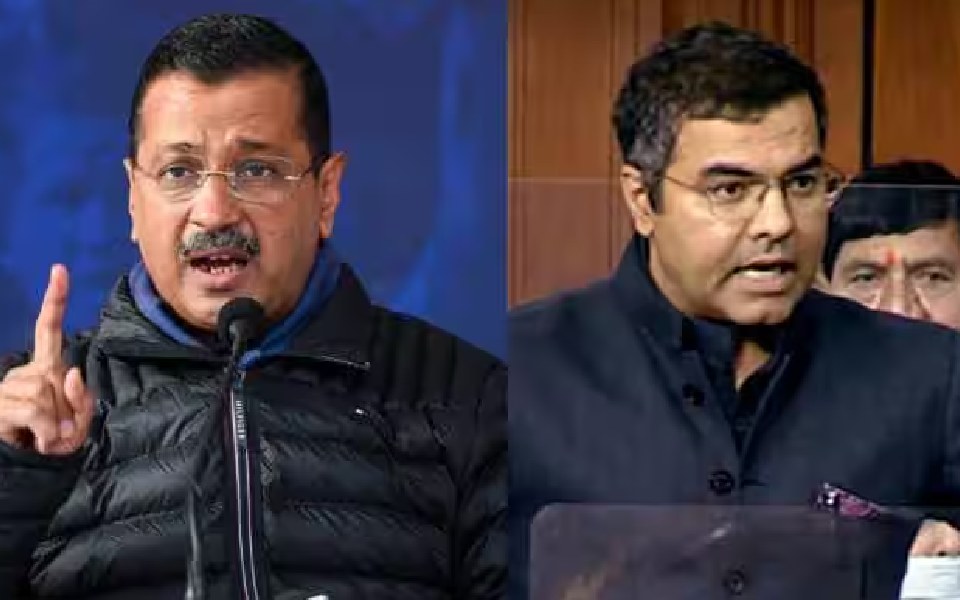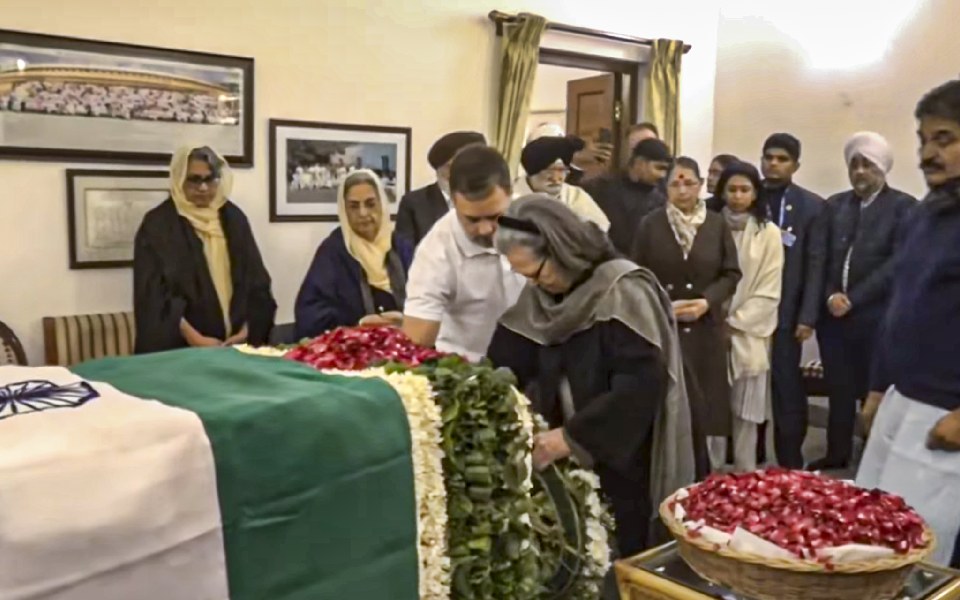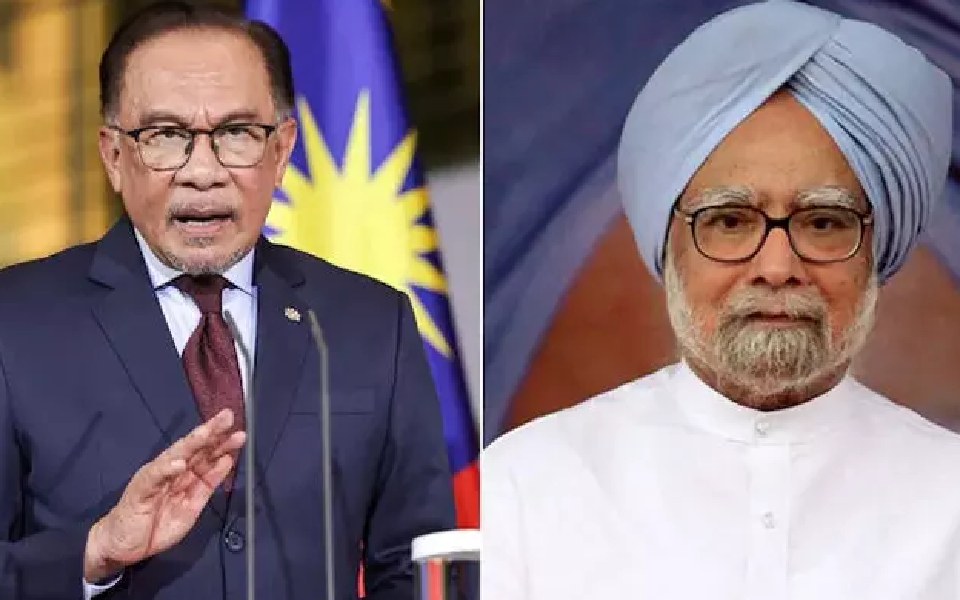New Delhi, July 4: In a message to Lt Governor Anil Baijal and Chief Minister Arvind Kejriwal, the Supreme Court in its Wednesday ruling on who administers the capital warned against obstructionism and cautioned against anarchy and absolutism in the power tussle between the Delhi government and the Centre.
In its 535-page judgment copy, the court reminded the LG and the Aam Aadmi Party (AAP) of the constitutional trust to "be exhibited by all constitutional functionaries while performing their official duties".
* 'It is a parliamentary form of government and federal balance in mandatory'
The court said the form of governance in the country was guided by the principle of collective responsibility of the Cabinet that owes a duty towards the legislature for every action taken in any of the Ministries and every individual minister is responsible for every act of the Ministry.
"This principle of collective responsibility is of immense significance in the context of 'aid and advice'. If a well-deliberated legitimate decision of the Council of Ministers is not given effect to due to an attitude to differ on the part of the LG, then the concept of collective responsibility would stand negated."
The ruling by the five-judge bench said the Constitution mandates a federal balance wherein independence of a certain required degree is assured to the state governments.
"As opposed to centralism, a balanced federal structure mandates that the Union does not usurp all powers and the states enjoy freedom without any unsolicited interference from the central government with respect to matters which exclusively fall within their domain."
* 'No statehood but Lieutenant Governor has to act on aid and advice of Delhi cabinet'
The court clearly ruled out the status of a state to Delhi under present constitutional scheme and said the status of NCT of Delhi was "a class apart" and the status of its LG was not that of a Governor of a state but remains an administrator only "in a limited sense".
The verdict said the Parliament had provided the capital a directly elected legislative assembly with legislative powers over matters falling within the state list and the concurrent list, barring those excepted, and a mandate upon the LG to act on the aid and advice of the council of ministers except when he decides to refer the matter to the President for final decision.
However, the assembly has no legislative powers on three subjects - land, police and law and order as enshrined in the constitution. The three subjects remain with the central government and powers related to these matters are exercised by the LG in consultation with the Home Ministry.
In respect of other matters, the executive power is to be exercised by the elected government - subject to the constitutional provisions, the court order said.
"Such an interpretation would be in consonance with the concepts of pragmatic federalism and federal balance by giving the government of NCT of Delhi some required degree of independence subject to the limitations imposed by the Constitution."
It said the LG is bound by the aid and advice of the council of ministers.
"The Lieutenant Governor has not been entrusted with any independent decision-making power. He has to either act on the 'aid and advice' of council of ministers or he is bound to implement the decision taken by the President on a reference being made by him."
* 'Lieutenant Governor must not act irrationally, mechanically'
The court emphasized that the power of the LG represents the exception and not the general rule which has to be exercised in exceptional circumstances keeping in mind among other constitutional requirements "the nurtured and cultivated idea of respect for a representative government".
"The Lieutenant Governor should not act in a mechanical manner without due application of mind so as to refer every decision of the council of ministers to the President. The difference of opinion between the Lieutenant Governor and the Council of Ministers should have a sound rationale and there should not be exposition of the phenomenon of an obstructionist but reflection of the philosophy of affirmative constructionism and profound sagacity and judiciousness."
In case of differences in opinions, the LG and ministers must attempt to settle any point by way of discussion and dialogue.
"The Lieutenant Governor must work harmoniously with his ministers and must not seek to resist them every step of the way. The need for harmonious resolution by discussion is recognized especially to sustain the representative form of governance."
* 'Lt Governor's concurrence is not needed'
The court said the LG being the administrative head shall be kept informed with respect to all the decisions taken by the council of ministers.
The terminologies "send a copy thereof to the Lieutenant Governor", "forwarded to the Lieutenant Governor", "submitted to the Lieutenant Governor" and "cause to be furnished to the Lieutenant Governor" employed in the rules governing the NCT lead "to the only possible conclusion that the decisions of the council of ministers must be communicated to the Lieutenant Governor".
This, however, "does not mean that the concurrence of the Lieutenant Governor is required.
"The communication is imperative so as to keep him apprised in order to enable him to exercise the power conferred upon him."
* 'Nobody should feel they have been lionized'
The court asked both the LG and the city government that they should constantly remind themselves that they were constitutional functionaries and "have the responsibility to ensure that the fundamental purpose of administration is the welfare of the people in an ethical manner".
Stressing on the need to have discussion and deliberation, the court said the fine nuances were to be dwelled upon with "mutual respect".
"Neither of the authorities should feel that they have been lionized. They should feel that they are serving the constitutional norms, values and concepts.
"Fulfillment of constitutional idealism ostracizing anything that is not permissible by the language of the provisions of the constitution and showing veneration to its sense, spirit and silence is constitutional renaissance.
"Our Constitution is a constructive one. There is no room for absolutism. There is no space for anarchy. Sometimes it is argued, though in a different context, that one can be a ‘rational anarchist', but (it) has no entry in the field of constitutional governance and rule of law."
Let the Truth be known. If you read VB and like VB, please be a VB Supporter and Help us deliver the Truth to one and all.
New Delhi, Dec 27: The Congress on Friday said that not finding a location for the cremation and memorial for Manmohan Singh is a deliberate insult to the country's first Sikh prime minister.
The Congress raked up the issue after the Union home ministry said in a statement that Singh's last rites will be held at New Delhi's Nigambodh Ghat at 11:45 AM on Saturday with full state honours.
Congress general secretary Jairam Ramesh said party president Mallikarjun Kharge wrote to Prime Minister Narendra Modi, urging him to conduct Singh's last rites at a location where a memorial could be built to honour his legacy.
"The people of our country are simply unable to understand why the Government of India could not find a location for his cremation and memorial that is befitting of his global stature, record of outstanding achievements, and exemplary service to the nation for decades," Ramesh said in a post on X.
"This is nothing but a deliberate insult to the first Sikh Prime Minister of India, Dr. Manmohan Singh," the Congress leader said.
Kharge wrote the letter after speaking to Modi about setting up a memorial for Singh, who was a two-term prime minister revered by the people of the country.
"Apropos our telephonic conversation today morning, wherein I made a request to hold Dr Manmohan Singh's last rites, which will take place tomorrow i.e. 28th December 2024, at his final resting place that would be a sacrosanct venue for memorial of the great son of India.
"This is in keeping with such tradition of having memorials of statesmen and former Prime Ministers at the very place of their funerals," Kharge said in his two-page letter.
The Congress chief said Dr Manmohan Singh holds a highly revered place in the psyche of the country and the people of this nation, and his contributions and achievements were phenomenal.
He also said that Dr Singh's erudition on economic and fiscal matters came from his vast experience as the governor of the Reserve Bank of India, chief economic advisor to the government of India and in various other capacities in several organisations, and the respect and regard that world leaders had for him bears testimony to this fact.
Kharge said Singh's wise counsel, leadership and contribution in mitigating the global economic financial crisis is well-acknowledged. He also recalled President Obama's words when as the US president, he mentioned that "whenever the Indian prime minister speaks, the whole world listens to him".
He also said that when the nation was in the throes of a grave economic crisis, it was Dr Manmohan Singh, along with former prime minister P V Narasimha Rao, who took India out of the crisis and also led the country towards economic prosperity and stability.
The nation today reaps the benefits of the robust economic foundations built by them, Kharge noted.
"Coming from a humble background and having experienced the pains and sufferings of the Partition, it is through his sheer grit and determination that he rose to become one of the leading statesmen of the world. I hope and trust that befitting stature of Dr Manmohan Singh, request to have the funeral of Dr Singh at a place where his memorial can be built, will be acceded," Kharge said in the letter.
Congress Legislature Party leader in Punjab assembly Pratap Singh Bajwa also separately urged Prime Minister Modi to have Manmohan Singh's funeral at a place where a memorial could be built later in his honour.
"I urge Prime Minister @narendramodi to honour Dr Manmohan Singh, one of the most towering Sikhs of modern times, with a memorial befitting his immense contributions to our nation. Rising from humble beginnings in a historic state, representing a community that has always stood steadfast for India's unity and progress, Dr Singh's life is a testament to intellect, integrity, and selfless service," he posted on X.
Bajwa said Punjabis across faiths and political lines unite in their heartfelt plea to recognise this son of Punjab, who played an instrumental role in shaping India's destiny, with the respect he deserves.
Shiromani Akali Dal leader Sukhbir Singh Badal claimed the Centre has "declined" the request of Manmohan Singh's family for performing the funeral and last rites at a place where an appropriate memorial may be built.
There is no official word from the government on Kharge's request.
However, Badal took to X to post, "Shocking and unbelievable! It is condemnable in the extreme that Union Govt has declined the request of Dr Manmohan Singh Ji's family for performing the funeral and last rites of the highly distinguished leader at a place where an appropriate and historic memorial may be built to commemorate his unparalleled services to the nation."
He further said this place should be Raj Ghat.
"This will be in keeping with the settled practice and tradition followed in the past," Badal said.
He said it is "inexplicable" why the government is "showing such disrespect to the great leader who was the only member of the Sikh community to rise to become the Prime Minister".
"As of now, the cremation is slated to be performed at the common cremation ground at Nigambodh ghat. I am unable to believe that the BJP govt's bias would go to such extremes in utter disregard of the towering global stature which Dr Manmohan Singh ji enjoyed and will always enjoy," Badal further said in his post.
He said Singh took the country to great international heights.
"Our political differences with the Congress apart, we have always held Dr Manmohan Singh in the highest esteem as he transcends politics and political affiliations. He belongs to the entire nation.
"Dr Sahib showed great sensitivity and compassion in his dealings with Shiromani Akali Dal over Sikh and Punjab issues," said Badal urging Modi to "intervene personally to change this deplorable decision of the government".
Singh passed away on Thursday night at Delhi's All India Institute of Medical Sciences (AIIMS) at the age of 92.
आज सुबह कांग्रेस अध्यक्ष ने प्रधानमंत्री को पत्र लिखकर प्रस्ताव दिया था कि पूर्व प्रधानमंत्री डॉ. मनमोहन सिंह का अंतिम संस्कार ऐसे स्थान पर किया जाए जहां उनकी विरासत का सम्मान करने के लिए एक स्मारक बनाया जा सके।
— Jairam Ramesh (@Jairam_Ramesh) December 27, 2024
हमारे देश के लोग यह नहीं समझ पा रहे हैं कि भारत सरकार उनके वैश्विक…

